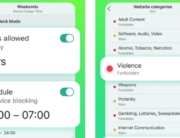If a free account becomes adequately delinquent, the buyer can be in standard and a creditor may payday loans Georgia charge from the account.
Dispute a financial obligation (contest a debt also) people whom don’t recognize a financial obligation or don’t concur that they owe the total amount of financial obligation reported may contest all or the main financial obligation verbally and/or in writing.
Under federal, State, and new york legislation, in disputing a financial obligation, customers have actually the right to:
- state they don’t recognize your debt or owe your debt as advertised;
- request the title and address for the creditor that is original distinctive from the present one; and
- demand that your debt collector offer information to exhibit that your debt is one of the customer and/or that the total amount is proper. (See verification of a financial obligation.)
Exempt funds cash that will never be taken by many creditors or loan companies to satisfy a judgment.
Customers may want to utilize exempt funds to spend a debt, but a creditor or debt collector cannot freeze or forcibly simply simply simply take these funds from consumers’ bank reports to cover a judgment.
Exempt money Protection Act (EIPA) ny State legislation that immediately protects a lot of money in a bank that is consumer’s from being frozen or taken by debt collectors.
Underneath the EIPA, if any funds in a bank that is consumer’s are frozen, the lender must make provision for the buyer with specific forms, called Exemption Claim Forms. The customer can use these types to declare that the frozen funds are exempt.
The following funds (in alphabetical purchase) are usually exempt from being frozen or garnished:
- Ebony lung advantages
- Youngster support payments
- General Public help (as an example, Temporary Assistance for Needy Families)
- Public or pensions that are private
- Railroad Pension Board benefits
- Personal safety, including your your your retirement, survivors, and Disability advantages
- Spousal help or upkeep
- Supplemental Safety Money
- Jobless Insurance Coverage
- Veterans Affairs advantages
- Employees’ settlement
Fair and Accurate Credit Transaction Act (FACTA) Federal law enabling customers to request and get a totally free credit file as soon as every one year from all the three consumer credit bureaus that is nationwide.
Fair credit rating Act (FCRA) Federal law that encourages the precision, fairness, and privacy of data within the files of customer reporting agencies and provides customers the proper to see their very own credit history and also to dispute mistakes.
Fair Debt Collection techniques Act (FDCPA) Federal legislation regulating collection task by collectors that:
- Prohibits practices that are abusive the collection of consumer debts;
- forbids unfair and misleading commercial collection agency techniques; and
- provides consumers the proper to dispute a financial obligation and obtain a validation notice to ensure the accuracy of a debt that is alleged.
- produces tips for just how loan companies may conduct company;
- defines consumer liberties whenever working with loan companies; and
- includes charges and treatments for violations associated with Act.
Fake debt ( See Phantom debt)
Federal Trade Commission (FTC) a government agency that enforces customer security and U.S. antitrust laws and regulations.
Along with filing a problem with DCWP, consumers can register an issue in regards to a financial obligation collector using the FTC.
Garnishment / Income Execution The work of requiring a debtor’s boss to withhold a percentage regarding the wages that are debtor’s spend a creditor which includes acquired a court purchase. Unless otherwise authorized for legal reasons, a debt collector must get yourself a court purchase or judgment to hold a garnishment out or earnings execution.
Harassment the usage of stress, annoyance, intimidation, or punishment within the tried collection of a financial obligation.
Loan companies might not harass customers. Types of unlawful conduct are:
- Threatening or using to utilize physical physical physical violence to damage an individual, their reputation, or their home;
- threatening somebody with a unlawful warrant;
- making use of obscene, profane, or abusive language; and
- causing a telephone to ring or engaging any person in phone discussion over and over over and over over repeatedly or constantly.






